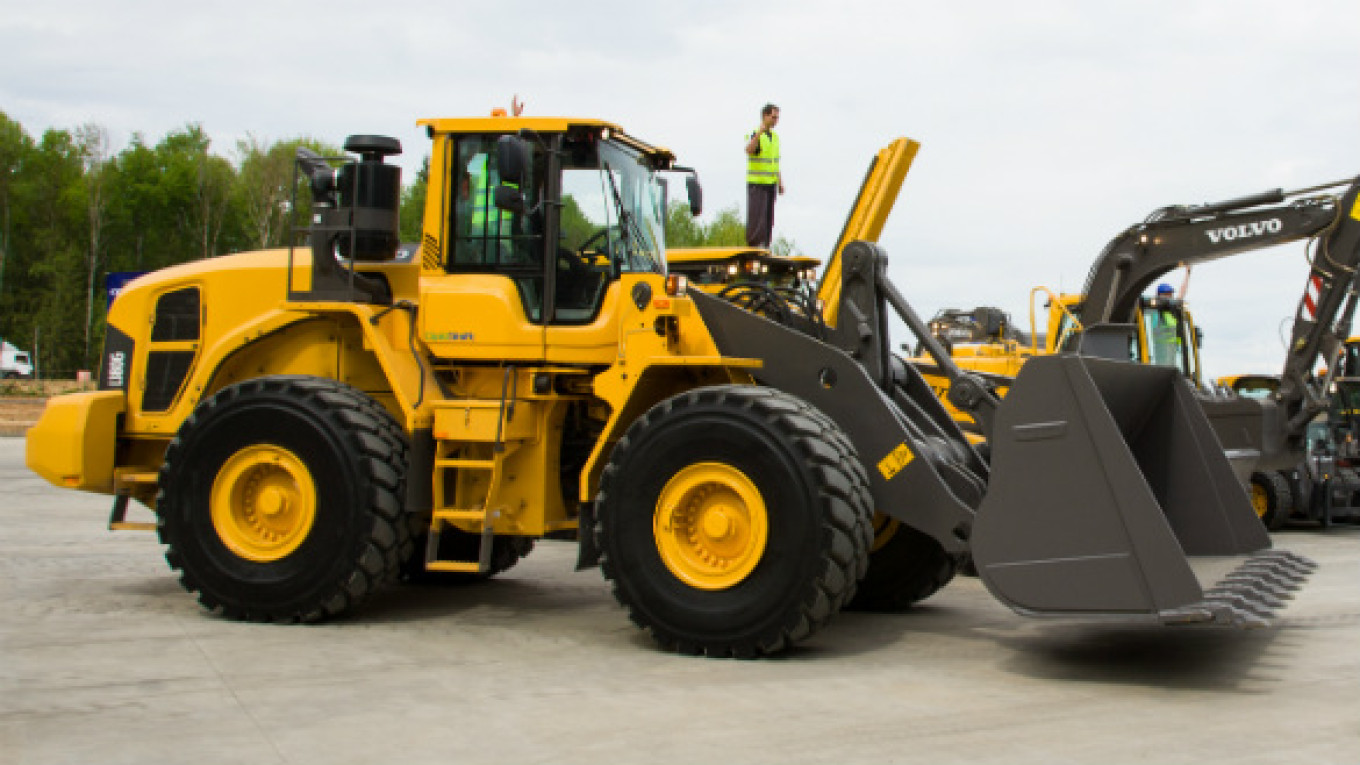KALUGA — Volvo on Tuesday opened a million plant to make excavators near Kaluga.
The company is transferring production closer to Russian customers following similar moves by its rivals Komatsu and Caterpillar.
"Customers now expect more flexibility and shorter lead time," Pat Olney, president of Volvo's construction equipment unit, said in an interview.
The machines it will manufacture are of the same type as those that are dredging the ground to build the Great Wall of Lagos in Nigeria, a giant breakwater that is one of the world's most formidable earth-moving efforts.
At first, the plant will use components from Sweden and South Korea, looking to source some of them locally over time.
The components from South Korea travel by ship, taking two months to arrive at Ust-Luga, the Russian port on the Baltic Sea. Trucks then deliver them to the plant.
Still, setting up local assembly will allow Volvo to manage lead time "much better," compared to importing whole trucks, Olney said. Building a stock of components, the plant will deliver orders quicker.
Volvo is hoping that large bulky parts, such as frames, are something that the local suppliers will provide in the first place.
With the capacity to produce 2,000 units a year, the Kaluga operation is starting at the pace of two excavators per day.
Olney estimated that the Russian excavator market amounted to between 6,000 and 9,000 units last year.
Russian imports of construction equipment increased an estimated 21 percent last year, Volvo Construction Equipment said in a statement announcing the grand opening in Kaluga.
Russia's preparations for sporting events, such as the 2014 Winter Olympics, ensure a steady demand for construction equipment.
Some other foreign players on the Russian excavator market are Hitachi and Hyundai, and there is a handful of domestic producers led by Tver-based Tvex.
Kaluga region Governor Anatoly Artamonov boasted at the grand opening that it takes just around a year from laying a cornerstone to ending construction of a production facility in the region.
Elsewhere across the country, construction permits and other red tape often bog down investment projects for years.
"It's a tradition for our region that companies open their plants one year after they start building," Artamonov said. "It's the right thing to do. It saves the investor's money."
The region has attracted a spectacular amount of Russian and foreign investment in recent years, and has consistently found itself at the top of business climate rankings. Last year, this investment amounted to 110 billion rubles ($3.55 billion), Artamonov said.
Artamonov recalled a situation that presumably proved the high quality of Volvo's construction equipment. During work on the construction site for a Volkswagen auto plant, only Volvo equipment was able to move in the dirt when it poured with rain heavily, he said.
The plant in Kaluga will be Volvo's seventh excavator plant worldwide.
Contact the author at [email protected]
A Message from The Moscow Times:
Dear readers,
We are facing unprecedented challenges. Russia's Prosecutor General's Office has designated The Moscow Times as an "undesirable" organization, criminalizing our work and putting our staff at risk of prosecution. This follows our earlier unjust labeling as a "foreign agent."
These actions are direct attempts to silence independent journalism in Russia. The authorities claim our work "discredits the decisions of the Russian leadership." We see things differently: we strive to provide accurate, unbiased reporting on Russia.
We, the journalists of The Moscow Times, refuse to be silenced. But to continue our work, we need your help.
Your support, no matter how small, makes a world of difference. If you can, please support us monthly starting from just $2. It's quick to set up, and every contribution makes a significant impact.
By supporting The Moscow Times, you're defending open, independent journalism in the face of repression. Thank you for standing with us.
Remind me later.


